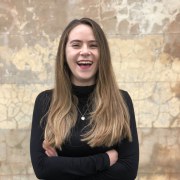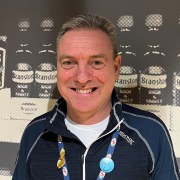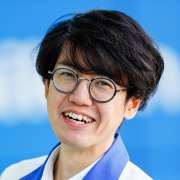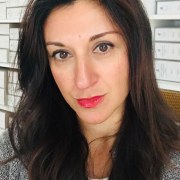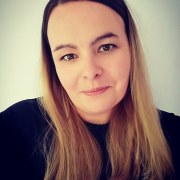Community voice, improving accessibility for all
Michel'Angelo Grima Hall Annex
Improving accessibility is not only the right thing to do, but it’s also good for the business. Reach out to communities, listen, and act on feedback. When communities have their voices heard you become a trusted partner, and it leads to improved accessibility for everyone.
Hear views from across Europe and Asia and be inspired. Find out how a centre in Poland has given a community a voice supporting refugees fleeing the war in Ukraine. Explore how listening to neurodivergent communities in the UK and Italy has impacted beyond simply supporting those communities. Experience innovative digital tools from Japan which aid communication, enabling conversations with the deaf community.
The potential of encouraging diverse communities to get involved is huge. With it comes a rich vein of new opportunities.
In this hands-on session, participants will have opportunities to share their own inspiring practice, advocating for 'Community Voice, Improving Accessibility'.
This session is part of the Inclusion and Equity conference track.
Outcomes: what will participants get from this session? Skills, knowledge, experience etc.
Understand that giving communities a voice may lead to improving accessibility for all.
Understand that it is good for the business for organisations to improve accessible for all.
Inspirations to improve accessibility for diverse communities.
The importance of listening to the voice of Visitors and collaborating with them.
Learning about a range of diverse approaches.
Have opportunities to view, physically touch, and experience tools e.g. Sensory bag, a real-time captioning display.
Session speakers
Community Liaison Manager
Newcastle upon Tyne
United Kingdom
For 5 years, Life and a regional Autism Society have worked in partnership to give the autistic community a voice. Life learned to listen and through doing so has been able to improve accessibility, not just for the autistic community, but for all visitors. Tools including sensory bags and visual stories were developed and Life received the Gold Standard for Autism Acceptance. At the Ecsite Conference 2022, this inspiring practice received the Mariano Gago 'Responsible and Responsive' Award.
David will talk about some of the learning and unexpected outcomes which have come from working with the autistic community, as well as giving delegates the opportunity to see what a real sensory bag and visual story look like.
Miraikan - The National Museum of Emerging Science and Innovation
Miraikan strives to become a science museum accessible to all. Collaborating with in-house laboratories, the museum has been developing tech-driven approaches for visitors with disabilities. Science communicators, including himself, are getting them involved by listening to their voices. Akira will be sharing practices and challenges in establishing an engaging communication channel with Deaf and hard-of-hearing visitors by using a real-time captioning handy display. Attendees will be given an opportunity for its hands-on experiences.
Deputy Director of the Public Programmes Office, MUSE (Italy)
Several types of museums cooperate for cultural, social and promotional aims. The teamwork among MUSE, a Contemporary Art Museum, a Museum of Anthropology and autism organisations allowed for debate and knowledge of the barriers that autistic people might face while exploring the exhibition and public spaces. Even if the identified solutions can be or not museum-specific, the sharing process fostered an exchange of each other's values, strengths and weaknesses towards neurodivergence.
Patrizia will show some tools, as the Easy to Read and the Augmentative Alternative Communication (AAC) guidebooks of MUSE. In addition, she’ll share the way to offer visitors with special needs a unique experience, a multi-sensory environment inside the museum: the Snoezelen room.
Copernicus Science Centre
The Copernicus Science Center aims to be equally accessible to all. Refugees came from Ukraine came to Poland, and we directed our activities for them, implementing many solutions i.e., hiring Ukrainian speakers. Our activities also support people with disabilities. Inviting various foundations to cooperate, also employing people with disabilities to better understand their needs and adapt our offer. These initiatives led to ASTC awarding Special Recognition in Community Service and Resilience.
Anna will present the activities that were undertaken in 2022 as part of the funding from the "Culture without barriers" project for people with visual and hearing disabilities.

